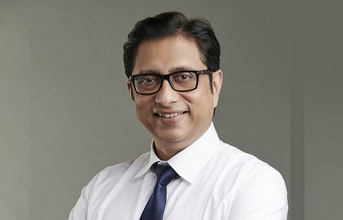
Manufacturing firms in the developed world are implementing Industry 4.0 solutions and quite a few of them also have presence in India. How do you see the overall Indian manufacturing sector aligning itself to stay apace with its global counter parts?
Indian businesses have been very quick to adopt global best practices in the implementation of Industry 4.0 solutions. These solutions are broadly time, expertise and capital intensive. A key parameter for implementation is the intent of businesses. We have witnessed a noticeable surge in manufacturing companies that partner with us in their motivation to align themselves to global quality standards.
The alignment with global manufacturing practices in India, differs among sub sectors. The automotive sector in India is among the more mature ones owing to its initial exposure to global markets. It is my strong belief that any business that is built on the pillars of scalability and efficiency, has the potential to transform into a successful firm with a global footprint. Globalisation as we all see has turned the entire business environment on its head. It is no longer about global companies setting their businesses in India. Local players are foraying into other parts of the world but while doing so, the key distinguisher is going to be quality of the product. Adoption of industry 4.0 is proving to be an empowering catalyst for local players who are expanding their footprint and operational volumes.
It is now time for India to be a global trend setter in manufacturing. This is possible if Indian manufacturers continue to be laser focused on driving scalability through high end quality and efficiency. The success of Indian manufacturing strongly hinges on prioritising longevity over profitability.
What do you think are the key advanced manufacturing trends that are driving the new wave of manufacturing?
Consistent improvisation is essential for any sector to stay relevant in such a dynamic environment. A clear example of improvisation is of Industrial Internet of Things (IIoT). It enables machines to communicate with each other and thereby take dispersed decisions in a highly globalised economy.
In line with IIoT are the concepts of Artificial Intelligence (AI), Machine Learning (ML) and Pattern Recognition (PR). AI, has the potential to immensely cut down production time. High intensity AI can help interpret data and speed in a cost-effective way.
Machine Learning can help companies transition from their sole dependence on traditional equipment maintenance methods to a high-end mix of data driven solutions and operational behaviour. The concept of pattern recognition can be a helpful in predicting production demand and anticipating maintenance issues too.
Advance technologies have a vast potential. However, it is also important that an ecosystem of partnership comprising companies, the government, industrial bodies is created to encourage a suitable business environment in which technology-driven growth can flourish.
(Continued on the next page)


























